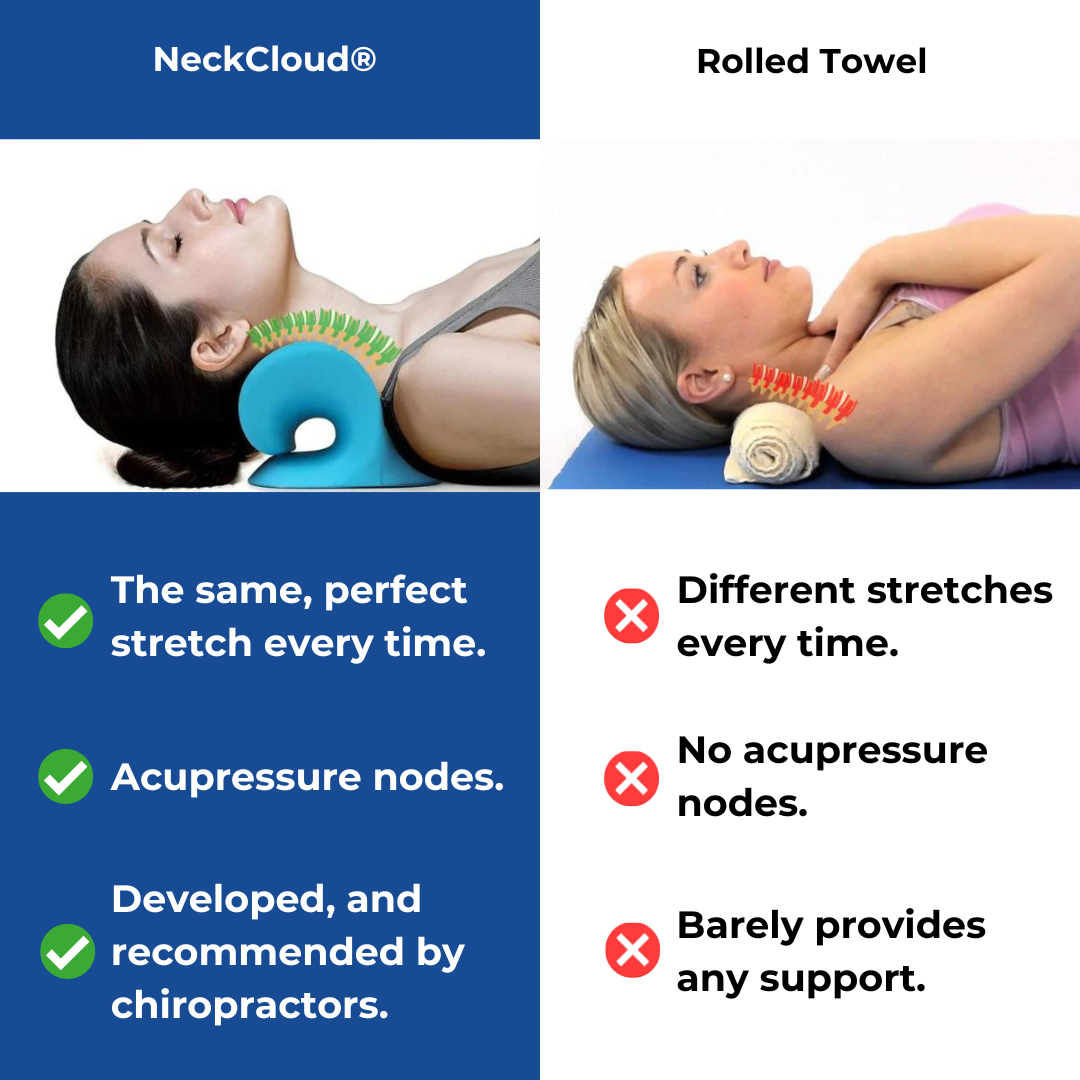Experience the Advantages of the Neck Cloud for Neck and Shoulder Alleviation
Experience the Advantages of the Neck Cloud for Neck and Shoulder Alleviation
Blog Article
The Influence of Stress on Neck Pain: Techniques for Reducing Stress and Pain
In today's busy globe, it's no key that tension has ended up being a common element in the beginning and worsening of neck discomfort. Join us on a trip to untangle the influence of tension on neck pain and discover reliable ways to ease pain and boost total quality of life.
Comprehending Stress-Related Neck Discomfort
Neck pain is a typical issue that can usually be credited to anxiety. Stress-related neck pain can materialize as stress, tightness, or discomfort in the neck and shoulder location. The connection between anxiety and neck discomfort exists in the body's physiological feedback to stress and anxiety, which can lead to muscle mass stress and rigidity in the neck muscles. Persistent stress can bring about persistent neck pain and exacerbate existing conditions like cervical spondylosis or muscle pressures.

Identifying Common Tension Locations
Frequently experienced by individuals under stress and anxiety, stress areas in the body can offer useful understandings right into the physical symptoms of mental stress. One usual stress area is the neck, where stress commonly manifests physically. Tension headaches, rigid neck muscular tissues, and limited variety of motion are typical symptoms of stress-related neck tension. The shoulders are another common area where stress gathers. Stress and anxiety can trigger the muscle mass in the shoulders to tighten up, causing discomfort and discomfort. Additionally, the top back is susceptible to tension accumulation, especially in individuals that experience chronic stress and anxiety. Poor pose and prolonged sitting can worsen tension around. The jaw is likewise a typical place for stress-related tension, as many individuals clinch their jaw or grind their teeth when emphasized. Recognizing these typical stress areas can help individuals identify the physical indications of tension and take actions to resolve them before they intensify right into persistent pain or pain.
Carrying Out Relaxation Methods
To properly handle stress-related stress in the body, applying leisure strategies is important. Relaxation strategies are important tools for minimizing neck pain caused by tension. Deep breathing exercises can aid calm the mind and unwind stressful muscular tissues in the neck and shoulders (neck cloud). Exercising mindfulness meditation can also be helpful in alleviating tension and promoting leisure. Progressive muscle mass relaxation, where you systematically tense and after that kick back various muscle groups, can launch built-up tension in the neck location. Additionally, tasks pop over to this site like yoga exercise and tai chi include both physical activity and relaxation, making them reliable techniques for lowering stress and anxiety and neck pain. Taking routine breaks throughout the day to stretch and relax can stop muscle stiffness and tension from collecting. By integrating these relaxation techniques into your daily regimen, you can help take care of stress degrees, reduce stress in the neck, and reduce discomfort connected with stress-induced neck pain.
Including Self-Care Practices
Incorporating self-care techniques is vital for preserving total health and handling stress-related neck discomfort successfully. Participating in routine exercise, such as gentle extending exercises or yoga exercise, can help ease tension in the neck and shoulders. Practicing excellent pose throughout the day and taking constant breaks from long term sitting or screen time can likewise protect against strain on the neck muscles.
Additionally, prioritizing ample sleep and establishing a regular rest routine can add dramatically to minimizing stress degrees and promoting relaxation. Developing a soothing going to bed routine, such as reviewing a publication or taking a cozy bathroom, can aid prepare the body and mind for relaxing rest. Additionally, keeping a balanced diet plan rich in nutrients and staying moisturized can support general health and wellness and minimize swelling that might intensify neck discomfort.
Integrating mindfulness techniques, such as deep breathing workouts or reflection, can aid take care of stress and promote relaxation. Taking some time for oneself, taking part in leisure activities, and setting borders to protect individual time are likewise crucial facets of self-care that can add to minimizing anxiety and minimizing neck discomfort.
Seeking Expert Help
How can people properly address persistent neck discomfort that is impacting their every day life and wellness? Looking for expert aid can be an important step in handling and alleviating neck discomfort. Consulting with healthcare specialists such as chiropractors, physiotherapists, or orthopedic professionals can supply valuable understandings and tailored treatment strategies. These professionals can perform complete assessments to diagnose the underlying sources of neck pain and recommend ideal treatments.
Chiropractors specialize in back manipulation strategies to improve placement and lower tension in the neck location. Physiotherapists use targeted stretches and exercises to strengthen muscular visit their website tissues, improve versatility, and improve overall neck function. Orthopedic experts can provide advanced medical interventions such as shots or surgical choices for extreme instances of neck pain.
Verdict

Stress-related neck pain can materialize as tension, rigidity, or discomfort in the neck and shoulder location. The link in between stress and anxiety and neck discomfort lies weblink in the body's physiological reaction to anxiety, which can result in muscle stress and tightness in the neck muscular tissues. Stress migraines, tight neck muscles, and restricted range of activity are common signs and symptoms of stress-related neck stress. By integrating these leisure strategies into your day-to-day regimen, you can assist take care of anxiety levels, lower stress in the neck, and ease discomfort linked with stress-induced neck discomfort.

Report this page